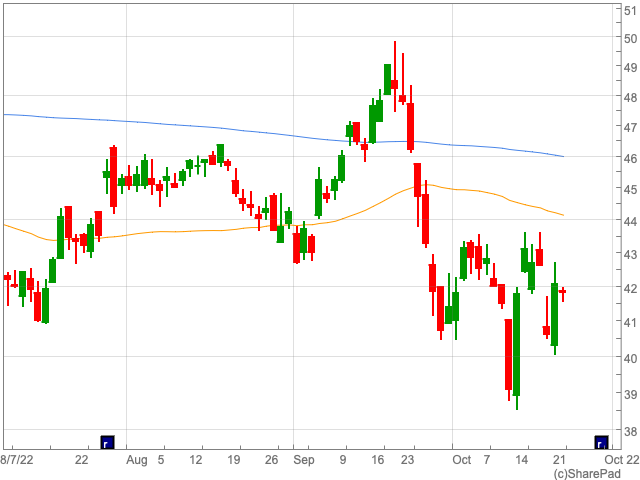Lloyds shares have suffered tremendously from the political debacle that’s gripped Westminster during Liz Truss’s tenure.
UK banks including Lloyds have been exposed to soaring mortgage rates and the threat of a slowing economy hurting their customer’s finances.
In September, Lloyds share price had been approaching the 50p level for the first time since April as investors positioned for higher interests and the benefits to banking Net Interest Margins.
However, the steady rally in Lloyds shares faced a rude awakening 23rd September when Kwasi Kwarteng dropped the mini-budget bomb shell on the UK economy.
UK Gilt yields soared, the pound crashed and the Lloyds share price sank to 40p.
Market turmoil and political chaos ensued, culminating in the resignation of Liz Truss yesterday. The market staged a minor relief rally shortly after the PM’s resignation with UK bank shares jumping.
Lloyds shares outlook
Investors may do well to proceed with caution over the coming days and weeks.
The problems caused by Liz Truss’s chaotic leadership will not disappear nearly as quickly as Truss did from her resignation speech.

Long term damage has been done to the UK’s reputation and markets have built a risk premium into UK assets that will take time to diminish.
We are yet to see the real impact of higher mortgage rates and there are big concerns around the health of the UK economy.
Lloyds will see the benefit of higher rates, but are also likely to set aside provisions for bad debts in their next update.
This will hurt Lloyds profits. The perception of how hard Lloyds profit may be hit will dictate trade in the short term. Today’s retail sales reading suggests Lloyds consumers are feeling the pinch.
The medium term outlook for Lloyds share price going into 2023 is largely dependant on the immediate actions of the next prime minister.
Support for consumers with energy bills could reduce Lloyds’ provisions for bad debts. However, interest rates are set to rise and we’ll unlikely see any let up mortgage rates before we see deterioration in the housing market.
This will be a double edged sword for UK banks – they will earn more from their mortgage book but defaults will rise.
The uncertainty around Lloyds share price has been reflected by Barclay’s analysts downgrading Lloyds price target to 50p from 55p with an equalweight rating. JP Morgan has 56p target and overweight rating.
With the Lloyds share price at 41p, there is attractive potential upside to these price targets, and much of the negativity discussed above will have largely been priced in.
